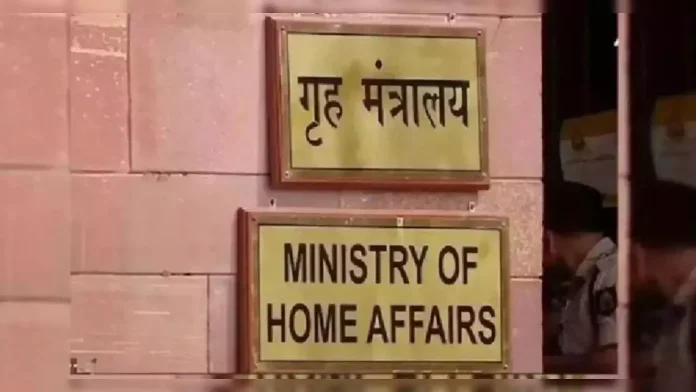NEW DELHI, Nov 8: The Ministry of Home Affairs (MHA) and representatives of the Kuki-Zo armed groups under Suspension of Operation (SoO) — the Kuki National Organisation (KNO) and the United Peoples’ Front (UPF) held a two-day round of talks on November 6 and 7, focusing primarily on the core demand for a Union Territory (UT) with a Legislative Assembly. The discussions also covered a broad spectrum of issues concerning the tribal people of Manipur.
The delegations of KNO and UPF, which are currently under the SoO framework, were led by senior leaders of the two umbrella groups, while the MHA was represented by A.K. Mishra, Advisor (North East) to the Ministry of Home Affairs.
On the first day (November 6), deliberations revolved around the implementation of the September 4 Tripartite Agreement signed between the MHA, Government of Manipur, and the SoO groups. The SoO leaders emphasized the need to address the administration and governance of Kuki-Zo inhabited districts under the current circumstances.
The second day (November 7) of the talks centered on the political demand for a Union Territory with a Legislative Assembly, during which the KNO and UPF leadership reiterated that coexistence under the present Manipur state administrative setup was “no longer possible” following the violent ethnic unrest that began in Imphal on May 3, 2023.
The Kuki-Zo representatives highlighted historical justifications for their political demand, asserting that the Kuki-Zo Hills were never under the control of the Manipur State Durbar before Independence. They pointed out that under British rule, Kuki-Zo lands and other tribal regions were classified as “Excluded Areas” under the Government of India Act, 1935, administered directly by the British Political Agent rather than by the Meitei king.
According to the SoO groups, traditional Kuki-Zo governance rested with the village chiefs, who exercised full control over land ownership, justice, and local administration. The incompatibility of the tribal land tenure system—based on ownership under chiefs—with the valley’s state-controlled land model was discussed in detail.
The KNO and UPF explained that when the British unified the administration of hills and valley for administrative convenience, dual governance remained intact, with the valley under the Maharaja’s rule and the hills under the British Political Agent. Culturally, politically, and administratively, they stated, the tribal people had never been organically part of the Manipur State before 1947.
Given this background, the Kuki-Zo representatives maintained that their demand for Union Territory status with a Legislature is rooted in both constitutional and historical legitimacy. They argued that after the merger of Manipur with India in 1949, the hill regions were unfairly absorbed into a valley-centric governance structure, disregarding tribal autonomy and traditional rights.
It was further emphasized that only the Meitei king was compensated during the merger, while the Kuki-Zo chiefs received nothing. Therefore, creating a separate administrative unit for the hill tribes within the constitutional framework of India, they said, would not constitute secession but rather a restoration of their pre-independence autonomy — and a crucial step toward equitable governance, security, and sustainable development within the Indian Union.
During the meeting, A.K. Mishra reiterated that while the Government of India remains sensitive to the plight of the Kuki-Zo people, the current national policy does not support the creation of new Union Territories. He also underlined the necessity of consultations with other communities in Manipur before any major policy changes.
The KNO and UPF delegation, however, urged the Centre to reconsider its position, arguing that constitutional provisions take precedence over government policy. The delegation further highlighted that the on-ground situation in Manipur made peaceful coexistence between communities impossible, necessitating constitutional interventions to secure the lives and property of the Kuki-Zo people.
The talks also touched upon key community concerns such as land rights, forest management, customary practices, and development, along with the need for mutual confidence-building measures to run parallel with the ongoing political dialogue.
The SoO leaders requested the MHA to take concrete steps to protect traditional tribal land rights and uphold the authority of village chiefs, who have historically managed land ownership and customary affairs in hill areas. They also urged the government to remove administrative hurdles related to the succession of village chiefs after their demise, and to simplify procedures for land registration and deed processing, which currently require travel to Imphal—an area that has been inaccessible and unsafe for the Kuki-Zo community since the outbreak of ethnic violence.
The rehabilitation of internally displaced persons (IDPs) was also discussed extensively, with the SoO representatives urging that their return and resettlement be expedited while ensuring adequate security and essential amenities.
The two-day dialogue concluded with both sides reaffirming their commitment to continue political discussions and confidence-building measures aimed at achieving a lasting and just resolution for the Kuki-Zo people

